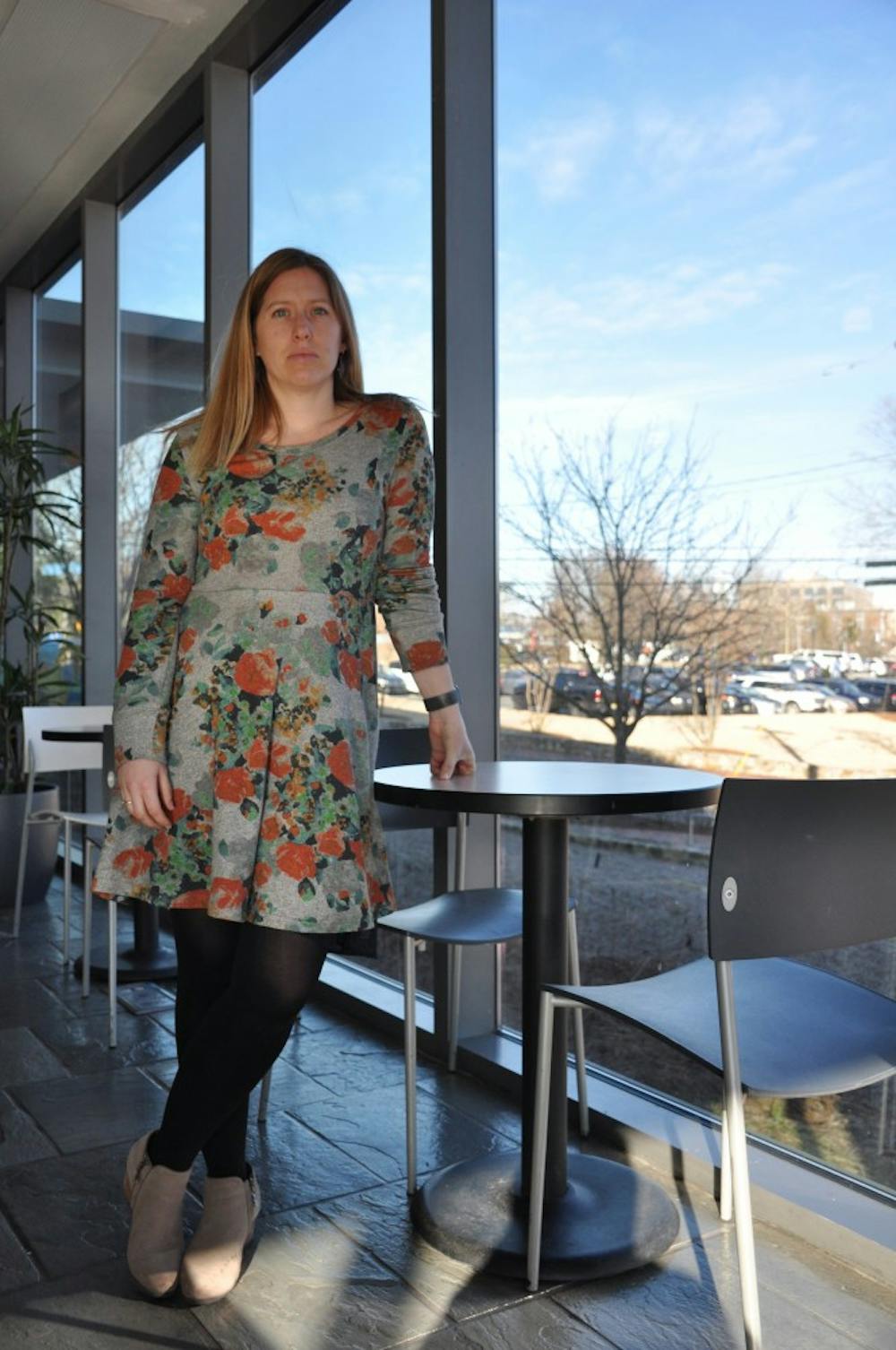Jeff Nash, spokesperson for the CHCCS district, said the district wanted to put something in place that would allow teachers to move up the pay scale quicker.
“Just because you’ve been in the classroom for more than 25 years, it doesn’t necessarily say you’re going to be better than teachers who have been there for 6 years,” he said. “Why do you have to survive 25 years to get to the high pay scale?”
The first level of Project ADVANCE is the state salary and the 16 percent supplement. If a teacher reaches the second level, they receive an additional $1,500. The third level receives an additional $3,000, and the fourth level an additional $5,000.
Turnover isn't the only reason why the state's teachers are pushing for higher pay.
Matt Cone, a social studies teacher at Carrboro High School, has been teaching for 18 years. He said the state will never recruit the teaching force they want if teachers aren’t paid enough.
“What about the kids going to law school and business school and are really bright and energetic and could be really great teachers, but haven’t considered it?” he said. “To me, there’s a whole pool of people that never even think about it, and it’s a shame.”
Cone said he thinks that because of the low pay, the teaching force is mostly white and middle-class, and students in CHCCS are less likely to have a teacher who is a person of color.
“What’s it like to go through your whole school experience and not see anybody like you?” he said. “We’re basically saying we’re content with a solid middle-class teaching force, and I don’t think that’s right.”
Anna Lewis has been teaching for three years as a science teacher at Carrboro High School. She said she can’t afford vacations or to live in Chapel Hill. The starting salary for a teacher with a bachelor’s degree in North Carolina is $35,000, as of July 2018.
“The main way it has affected me is still being young and wanting to do things and realizing that a lot of those things cannot happen right now because of what I make,” she said. “Right now as a recent college graduate, I haven’t made it out of the paycheck to paycheck situation.”
She said the district is good about getting them supplies in the beginning of the year, but it’s difficult to get materials in the middle of the year because of how long it takes. She said some of the materials she ordered over the summer came in January.
Lewis said she spends $100 a month out of her pocket on lab materials.
To get the day's news and headlines in your inbox each morning, sign up for our email newsletters.
“I remember going to teacher fairs to interview and they would say, ‘You’ll get this much signing bonus!’ because it was the only way to get people interested,” she said. “They would almost say ,‘For the love of the kids, you got into this profession — the money might be terrible but don’t forget the kids!'”
Over the summer, Lewis worked as a daycare teacher assistant to make more money. She said she hopes to get her master’s degree but is currently unable to afford school without scholarships.
Christen Campbell has been a French teacher at Chapel Hill High School for 10 years. She said she has lived in the same place for nine years and can't afford to move.
“I think it’s a national epidemic that the professions that are largely dominated by women, historically — nursing, social workers, etc. — you see the lowest pay,” she said. “There’s hope for us if more women get into politics.”
Before the Red4EdNC teachers' march in May 2018, Campbell said she went to the N.C. State Board of Education meeting during their open session to make a statement about teacher pay.
“Right now as a teacher I have one child in daycare and most of my salary goes to childcare, and if I have another child, then I really have to consider if I should keep working or not because the cost of child care is so high,” she said. “There’s this big irony of me taking care of the children of America, yet when it comes to me and my own children, they’re not necessarily being taken care of.”
Campbell said she had student interns about four years ago, but after UNC cut their graduate foreign language teaching program in 2015, there haven’t been many student teachers anymore.
She said she feels like she’s treading in sand and at the end of the day has to think about her family.
“I’ve had students say they want to be teachers, and in a way, my heart sinks because I don’t want them to go through what I’ve had to go through,” she said. “I want them to feel valued by their job.”
The Red4EdNC campaign has been working with over 300 teachers in 57 school districts to train them in how to organize grassroots campaigns.
Scioli, the founder of Red4EdNC, said the recent midterm election changed her outlook on the issue.
"I'm not terribly optimistic except for the fact that we broke the supermajority," she said. "It seems like (the General Assembly is) cultivating the ground for Democrats to perhaps be bought into more conversations."
The group plans to advocate for various issues regarding teachers, including pay, resources and retention, at the National Center on Education and the Economy on March 22.
city@dailytarheel.com



